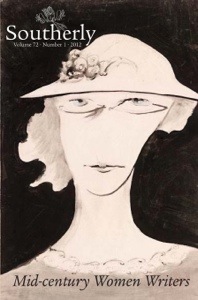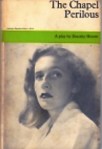Dorothy Porter, The Bee Hut (Black Inc 2009)
I found it hard when reading this book to separate the poetry out from the circumstances in which it was written, but I don’t think that’s necessarily a bad thing. The doctrine that the author’s biography is irrelevant to an understanding of her work may be useful in the classroom but not so much anywhere else.
Most of the poems collected here were written when Dorothy Porter was dealing with cancer – diagnosis, surgery, chemotherapy, remission, recurrence and the expectation of imminent death. The poetry is permeated by a sense of mortality and – as with the last poems of Dorothy Hewett and any number of other poets – the knowledge of the real-life situation adds tremendous poignancy for the reader.
Some of the poems address the cancer story directly – as in ‘The Ninth Hour’ (‘it’s your shriveling / flesh / that has the whip hand’), or ‘Not the Same’ (‘When you climb / out a black well / you are not the same’), or ‘View from 437’, written days before her death (‘Something in me / despite everything / can’t believe my luck’). Others, possibly most of the poems in the book, might otherwise seem elegant meditations or slender lyrics, but in this context read as heroic moments of facing reality. I particularly like ‘Numbers’, otherwise a slight, self-derogatory reflection, for the way it is transformed by knowledge of the circumstances of its creation:
I get magic sometimes I get more than I bargain for but I don't get numbers. Numbers do worse than humiliate or elude me they don't add up. I am no algebra tart ravished by the meretricious music of the spheres. My eyes and nose never streamed with incontinent ecstasy through geometry classes as my disastrous triangles collapsed in a cacophony around me. Perhaps it's a failing to grasp or even want the utterly perfect number burning through my retina like the utterly perfect morning. Instead I peer with nauseating vertigo into the deep dark pitch of numbers like an exhausted mammoth dangerously tottering on the edge of a bottomless mystery.
I may be playing a version of that game where you add ‘in bed’ to the quotes on a desk calendar, and almost without exception the quotes still make sense, usually quite a different sense from the original. But is it too far-fetched to read ‘Numbers’ as responding obliquely to all the calculation of percentages and probabilities that accompanies cancer diagnosis and treatment? Or is it just that, as I’m sure someone has said, all true art deals with mortality?
This isn’t a gloomy or single-minded book. There are traveller’s tales, some of them recalling moments from the poet’s variously brash, optimistic and judgmental youth; love poems; lyrics commissioned for performance; responses to other poets, including Byron, Blake, Bruce Beaver, Baudelaire, some that don’t start with B, and a possibly ironic lament for not having read enough Rimbaud (or more accurately not having read Rimbaud enough); and more.
My previous acquaintance with Dorothy Porter’s work has been through the forgettable movie made from her verse novel The Monkey’s Paw, and her verse novel What a Piece of Work, which I hated for its vilely misogynistic Francis Webb figure. I’m glad I decided to have another go at reading her work.
The Bee Hut is the second book I’ve read as part of the 2014 Australian Women Writers Challenge. (Evidently I was one of the two most prolific reviewers of poetry for last year’s challenge. I confess to feeling like a fraud, since a number of the poetry books I reviewed had fewer than 20 pages.)







